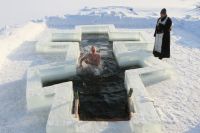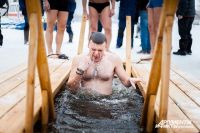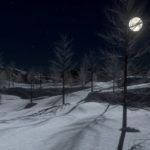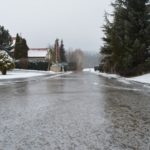Epiphany frosts will be very weak this year in the Central part of Russia, writes «Russian newspaper» with reference to head of the laboratory of the Hydrometeorological Center of the Russian Federation Lyudmila Parshina. According to the meteorologist, Cloudy weather expected next weekend, it will snow from time to time. Temperatures at night will be 5 to 10 degrees below zero, a day from 2 to 7 degrees of frost. The prerequisite for this is the Atlantic cyclone, which is moving towards the center of the country – it will bring snow and warming.
Question answer
What is the paradox of Epiphany frosts?

What is Epiphany frost?
Epiphany frosts – it's a folk tale, according to which, for baptism, Orthodox holiday, which believers celebrate 19 January, especially severe frosts are set in Russia. Orthodox edition «Thomas» writes, that this holiday in Rus' usually coincided with severe frosts, that's why they were called «baptismal». That's where the saying came from: «Crackling frost, don't crackle, and Vodokreshti passed».
According to meteorologists, omen, really, has some reason – the second half of January is the coldest period of the year. Leading specialist of the weather center «Phobos» Leonid Starkov in an interview with the publication «Companion» told, that at this time in the Asian part of the country the oceans lose their warming effect on the mainland, the Asian anticyclone begins to dominate there. Eventually, denser cold air and frost. The Siberian anticyclone sometimes comes to the European part of Russia in January and February. It stops the normal movement of air masses, that are warmed by the Gulf Stream, and also brings with it cold and bitter frosts.
Question answer
How to prepare the body for bathing at Baptism?

Meanwhile, specialists of the Meteo.tv portal note, what about baptism, really, temperatures sometimes drop below normal. But there is no trend to speak of.. According to the research work of meteorologists of various research organizations, including at the Meteorological Observatory of Moscow State University, in Moscow and in the towns of Central Russia 19 January, the air temperature dropped below normal only in 30-35% cases, and turned out to be above the norm in 50% cases. In the entire history of meteorological observations, the temperature at Epiphany in the capital very rarely exceeded minus 30 degrees. The record of this day is minus 32 degrees, this weather was recorded in 1927 year. Meanwhile, January's absolute low is minus 42 degrees – this indicator was recorded by devices 17-18 January 1940 of the year.
According to daily rules, calculated by specialists of the Hydrometeorological Center of the Russian Federation, in Moscow this indicator 19 January is minus 6,7 degrees. Then it grows and reaches a maximum 1 February – 7,2 degrees. Beginning with 7 February, temperature starts to drop. Thus, lower average air temperature is observed in late January-early February, not on the feast of Epiphany.




